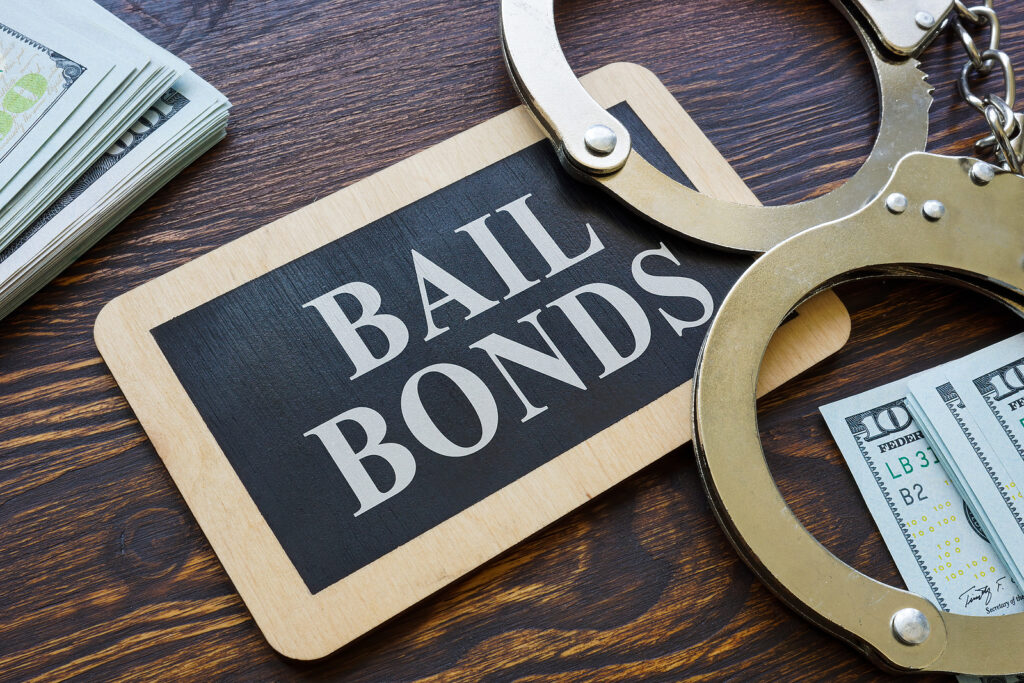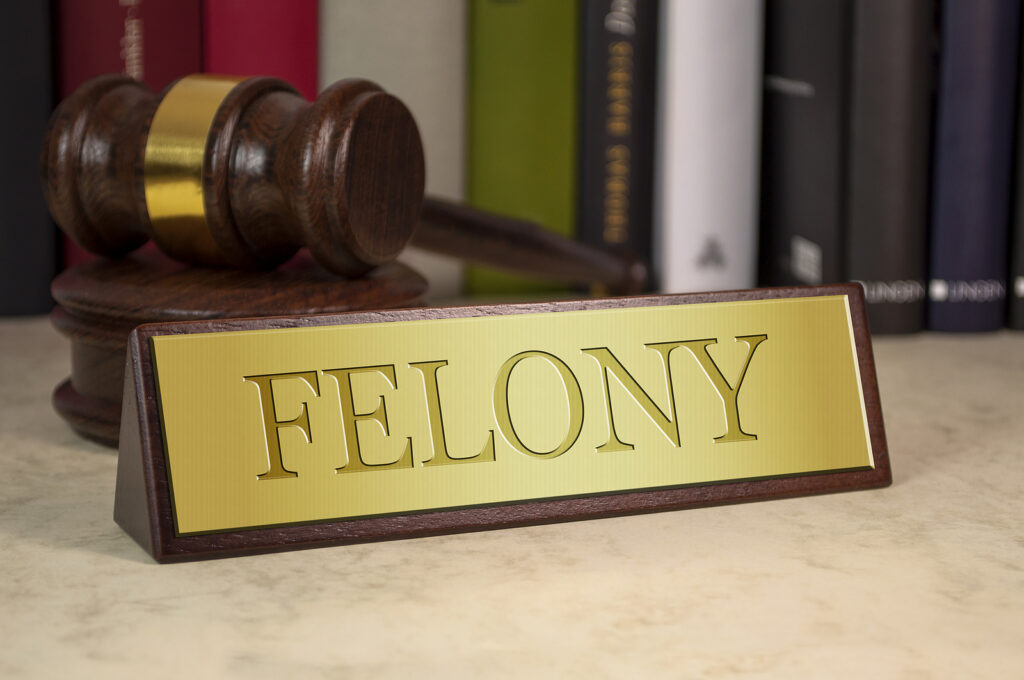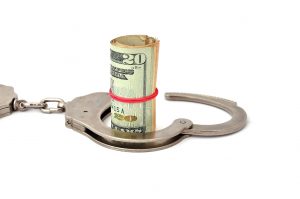Navigating the legal system can be overwhelming, especially when a loved one is detained. One crucial element of this process is understanding how bail bonds work. For residents of Indiana, knowing the ins and outs of bail bond rates can make a significant difference in managing this stressful situation.
This blog post aims to educate Indiana residents, family members of detainees, and defendants with arrest warrants on the intricacies of bail bonds. We’ll cover the purpose of bail bonds, the bail bond process in Indiana, how rates are determined, and tips for finding a reputable bail bondsman.

The Purpose of Bail Bonds
Bail bonds serve an essential function in the criminal justice system by allowing defendants to be released from custody while awaiting trial. The primary purpose of bail is to ensure that the defendant returns to court for their hearings. For families, securing bail means that their loved ones can continue their daily lives and maintain employment while their case progresses.
Bail bonds offer a practical solution for those who cannot afford to pay the full bail amount set by the court. Instead, they can pay a percentage of the bail amount to a bail bondsman, who will then post bail on their behalf. This financial arrangement makes it easier for families to manage the costs associated with securing a defendant’s release.
Understanding the purpose of bail bonds can provide peace of mind and clarity during a challenging time. By knowing the options available, families can make informed decisions and better support their loved ones through the legal process.
Overview of the Bail Bond Process in Indiana
The bail bond process in Indiana begins when a judge sets a bail amount during the defendant’s initial court appearance. The bail amount is determined based on factors such as the severity of the alleged crime, the defendant’s criminal history, and the perceived flight risk.
Once the bail amount is set, the defendant or their family can choose to either post the full bail amount directly with the court or seek the assistance of a bail bondsman. A bail bondsman is a licensed professional who provides a surety bond to the court, guaranteeing the defendant’s appearance at future court dates.
To obtain a bail bond, someone must pay a non-refundable fee to the bail bonds agency, usually about 10% to 15% of the bail premium. Additionally, the bail bond company might require collateral, such as property or valuable assets, to cover the full bail amount if the defendant does not show up in court. Once the bail bond is secured, the defendant is released from custody and must adhere to any conditions set by the court until their trial is complete.
How Bail Bond Rates Are Determined in Indiana
Bail bond rates in Indiana are influenced by several factors, including the bail amount set by the court, the risk associated with the defendant, and the bail bondsman fee. Understanding these factors can help families anticipate the costs involved in securing a bail bond.
- Bail Amount Set by the Court: The court determines the bail amount based on the nature and severity of the alleged crime, the defendant’s criminal history, and the likelihood of the defendant appearing in court. Higher bail amounts typically correspond to more serious charges or higher flight risks.
- Risk Associated with the Defendant: Bail bondsmen assess the risk of the defendant failing to appear in court. Factors such as the defendant’s ties to the community, employment status, and past behavior play a role in determining the level of risk. Higher-risk defendants may be subject to higher bail bond fees or additional collateral requirements.
- Bail Bondsman Fee: The fee charged by bail bondsmen in Indiana is generally 10% to 15% of the total bail amount. This fee is non-refundable and serves as compensation for the bail bondsman’s services. In some cases, bail bondsmen may also charge additional fees for administrative tasks or monitoring services.
By understanding these factors, families can better anticipate the costs associated with securing a bail bond and make informed decisions about their options.
Cost of Posting Bail Directly vs. Using a Bail Bondsman
Paying bail directly to the court requires covering the full amount upfront, which can place a heavy financial burden on many families. In contrast, using a bail bondsman allows families to secure the defendant’s release by paying a smaller percentage of the total bail amount.
- Posting Bail Directly: Paying the full bail amount directly to the court ensures that the funds will be returned to the defendant at the end of the trial, provided they comply with all court appearances and conditions. However, this option requires a substantial upfront payment, which may not be feasible for many families.
- Using a Bail Bondsman: By working with a bail bondsman, families can secure the defendant’s release by paying a non-refundable fee, typically around 10% of the total bail amount. While this fee is not returned at the end of the trial, it offers a more manageable financial solution for families who cannot afford the full bail amount.
Choosing between posting bail directly and using a bail bondsman depends on the family’s financial situation and their ability to pay the full bail amount upfront. For many families, working with a bail bondsman provides a more accessible and less financially burdensome option.
Benefits of Choosing Bail Bond Services
Opting for a bail bond offers several financial and practical benefits for families navigating the legal system. First and foremost, it allows families to secure the defendant’s release without paying the full bail amount upfront. This can significantly reduce the financial strain on families during an already challenging time.
Additionally, bail bondsmen often have extensive knowledge of the legal system and can provide valuable guidance throughout the process. They can help families understand their options, ensure that all necessary paperwork is completed correctly, and offer support in meeting court requirements.
Finally, using a bail bond allows families to preserve their savings and assets. Instead of liquidating valuable assets to pay the full bail amount, families can leverage the services of a bail bondsman to secure the defendant’s release with a smaller upfront payment.
Tips for Finding a Reputable Bail Bondsman in Indiana
Selecting a trustworthy and reliable bail bondsman is crucial for ensuring a smooth bail bond process. Here are some tips to help families find a reputable bail bondsman in Indiana:
- Check Licensing and Credentials: Ensure that the bail bondsman is licensed and authorized to operate in Indiana. Verify their credentials with the Indiana Department of Insurance, which regulates bail bondsmen in the state.
- Read Reviews and Testimonials: Check reviews and testimonials from past clients to assess the bail bondsman’s reputation and service quality. Positive feedback and high ratings can indicate a trustworthy and reliable professional.
- Ask Questions: When consulting with a bail bondsman, ask questions about their experience, fees, and any additional services they offer. A reputable bail bondsman will be transparent and willing to provide detailed information to help you make an informed decision.
By following these tips, families can find a reliable bail bondsman who can guide them through the bail bond process with professionalism and integrity.
Conclusion
Understanding how bail bond rates work in Indiana is essential for families navigating the legal system. By familiarizing themselves with the bail bond process, the factors that determine bail bond rates, and the benefits of using a bail bondsman, families can make informed decisions and support their loved ones effectively.
Remember, selecting a reputable bail bondsman is crucial for ensuring a smooth and successful bail bond process. By checking licensing, reading reviews, and asking questions, families can find a trustworthy professional to guide them through this challenging time.
If you need assistance with securing a bail bond in Indiana, don’t hesitate to reach out. Our experienced team at Uptown Bail Bonds are here to help you every step of the way, providing expert guidance and support to ensure a smooth and successful bail bond process in Hamilton County, Indiana. Contact us today at 317-919-2489 to learn more and get started.
Related Posts:
The Fine Print: Deciphering the Terms of Your Bail Bond Agreement
How Much Does a Bail Bond Cost in Indiana
Decoding Bail Bond Fees: What to Expect in Indiana







